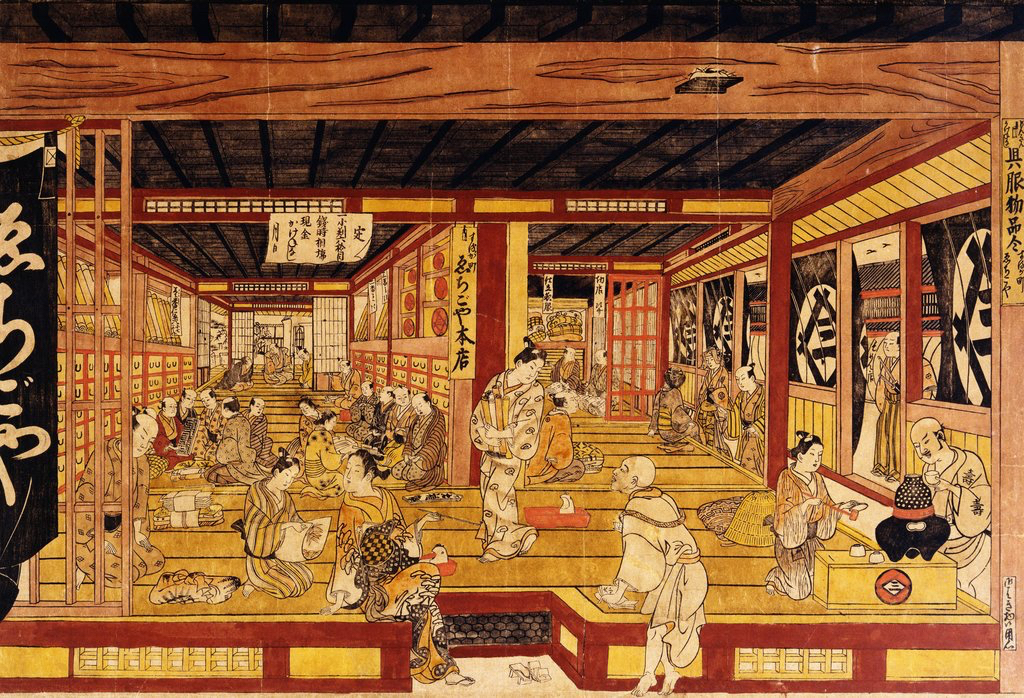
By around 1700, most families in Japan were formed through stem succession: a single male heir inherited virtually all resources while his siblings departed the household. The practice cut across social station and calling, making it exceptional in the early modern world, and arose in combination with equally arresting patterns of familial conduct: the routine adoption of heirs, even in the presence of biological sons; a generally untroubled acceptance of divorce and remarriage; and a widespread tolerance of concubinage and prostitution. How do we account for these practices? Do they fit together? And why did they occur in Tokugawa Japan? This talk puts family decisions at the heart of social history as both a consequence and a cause of economic change. The Mitsui family of textile merchants and financiers (who ran the Echigoya, pictured in the illustration) will feature as an example.
About the Speaker:
 Dr. Mary Elizabeth Berry is the Class of 1944 Professor of History Emerita in the Department of History at the University of California-Berkeley. A past president of the Association of Asian Studies, Dr. Berry has made an indelible impact on the study of Japanese history with her numerous publications, including Hideyoshi (Harvard, 1982), The Culture of Civil War in Kyoto (California, 1994), and Japan in Print: Information and Nation in the Early Modern Period (California, 2006).
Dr. Mary Elizabeth Berry is the Class of 1944 Professor of History Emerita in the Department of History at the University of California-Berkeley. A past president of the Association of Asian Studies, Dr. Berry has made an indelible impact on the study of Japanese history with her numerous publications, including Hideyoshi (Harvard, 1982), The Culture of Civil War in Kyoto (California, 1994), and Japan in Print: Information and Nation in the Early Modern Period (California, 2006).
 Faculty of Art
Faculty of Art